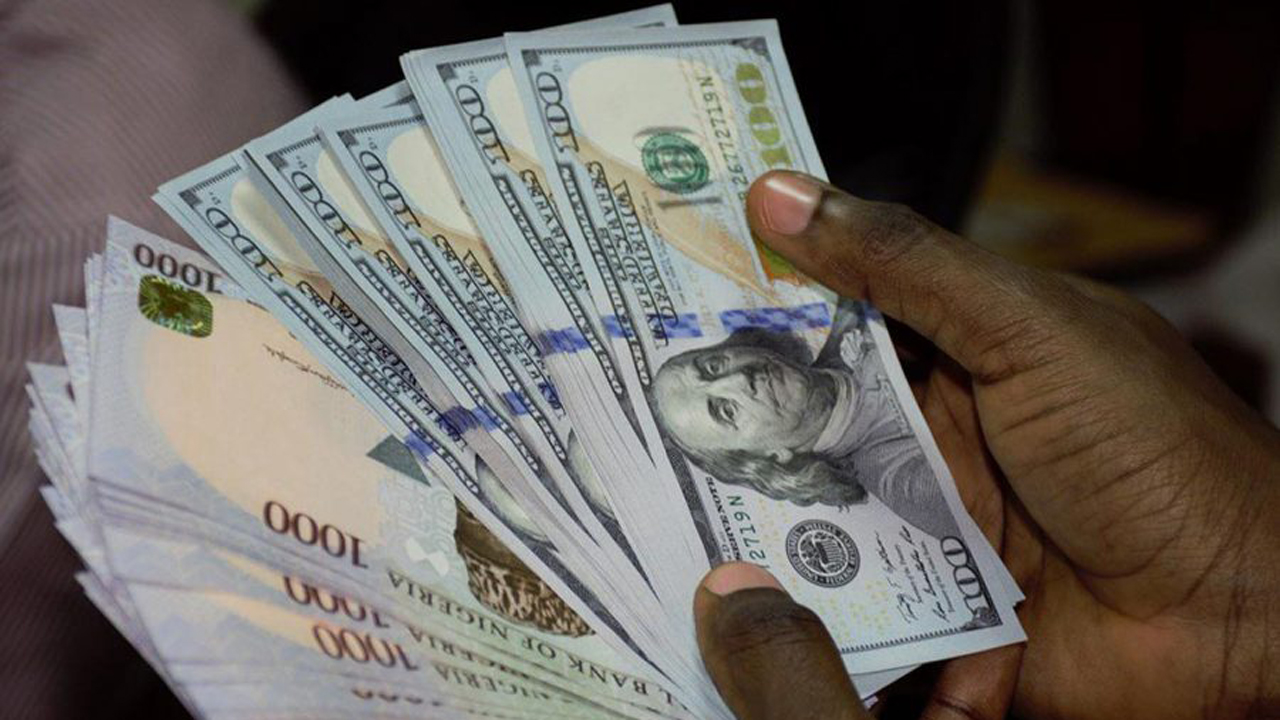Finance
Naira Rate Firms Up at Official Market, Gains 9.68%
Published
2 years agoon

The naira appreciated to 1,339.33/$ at the close of trading on the official window on Monday, gaining 9.68% over Friday’s rate of 1,482.81/$.
According to FMDQ data, which houses the Nigerian Autonomous Foreign Exchange Market, the daily turnover dropped to $180.80 million from $556.25 million on Friday, indicating a 67.50% decline.
Read Also:
At the official market, the naira traded at an intraday high of N1,501 and an intraday low of N1,310 to the dollar on Monday.
At the black market, the naira traded at N1,520, indicating a 1.32 per cent depreciation from N1,500 exchanged on Friday.
The local currency on Friday closed flat against the dollar, ending the week marginally strong at the official foreign exchange market after weeks of weakening, a situation that the Central Bank of Nigeria Governor (CBN), Olayemi Cardoso, termed seasonal fluctuation.
He said this at the post-Monetary Policy Committee (MPC) meeting press briefing last Tuesday in Abuja.
“Members further observed the recent volatility in the foreign exchange market, attributing this to seasonal demand, a reflection of the interplay between demand and supply freely functioning market system,” Cardoso said.
BUSINESS METRICS observes that the appreciation of the local currency is also connected to the rise in the nation’s forex reserves by additional $73.05 million to $32.74 billion last week, marking the fifth consecutive accretion in the continuing buildup of the reserves.
Penultimate week, the reserves had added $195.01 million. It had grown by $89.76 million, $132.68 million and $10.76 million in recent weeks.
According to Uche Uwaleke, a professor of capital market and President, Association of Capital Market Academics in Nigeria, said any increase places the CBN in a stronger position to meet forex obligations as well as intervene in the forex market.
Share this:
- Click to share on X (Opens in new window) X
- Click to share on Facebook (Opens in new window) Facebook
- Click to share on WhatsApp (Opens in new window) WhatsApp
- Click to share on Pocket (Opens in new window) Pocket
- Click to share on Telegram (Opens in new window) Telegram
- Click to email a link to a friend (Opens in new window) Email
- Click to share on LinkedIn (Opens in new window) LinkedIn
You may like


Nigerian Banks Set New Target to Respond to Frauds


NCC, CBN Introduce 30-Second Refund Rule for Failed Airtime and Data Purchases


Banks’ N1.96Trn Black Hole: Who Took the Loans, Who Defaulted, and Why the Real Economy Suffers


How Policy Missteps Weigh Down Nigeria’s Fragile Banking Giants


Nigeria at 65: A Nation Still Waiting for a Banking Revolution


Nigeria’s Banking Woes: How One South African Bank Outvalues an Entire Industry












